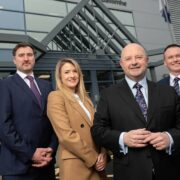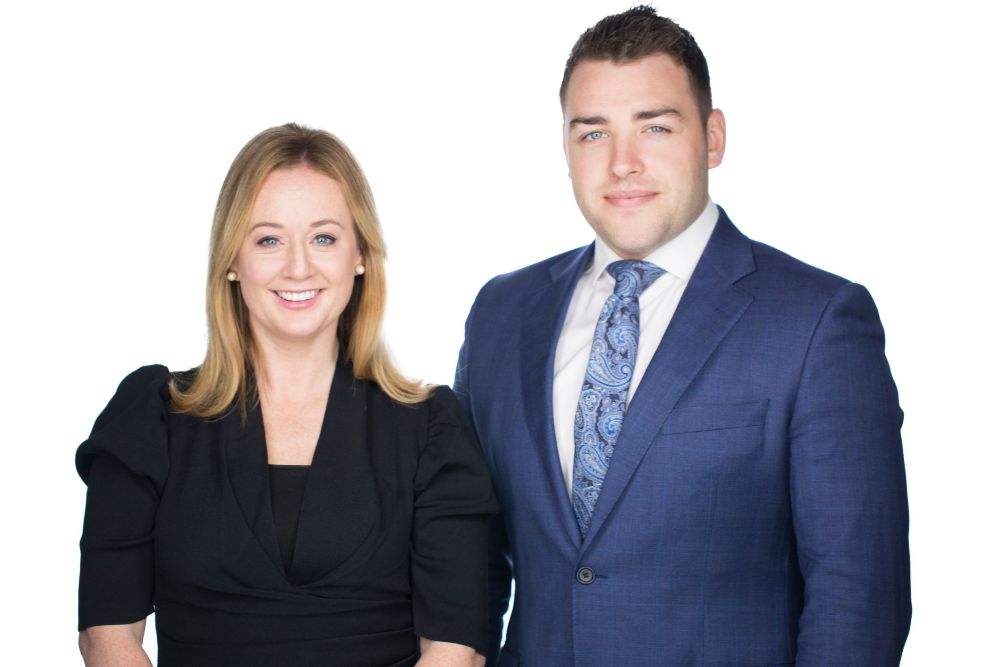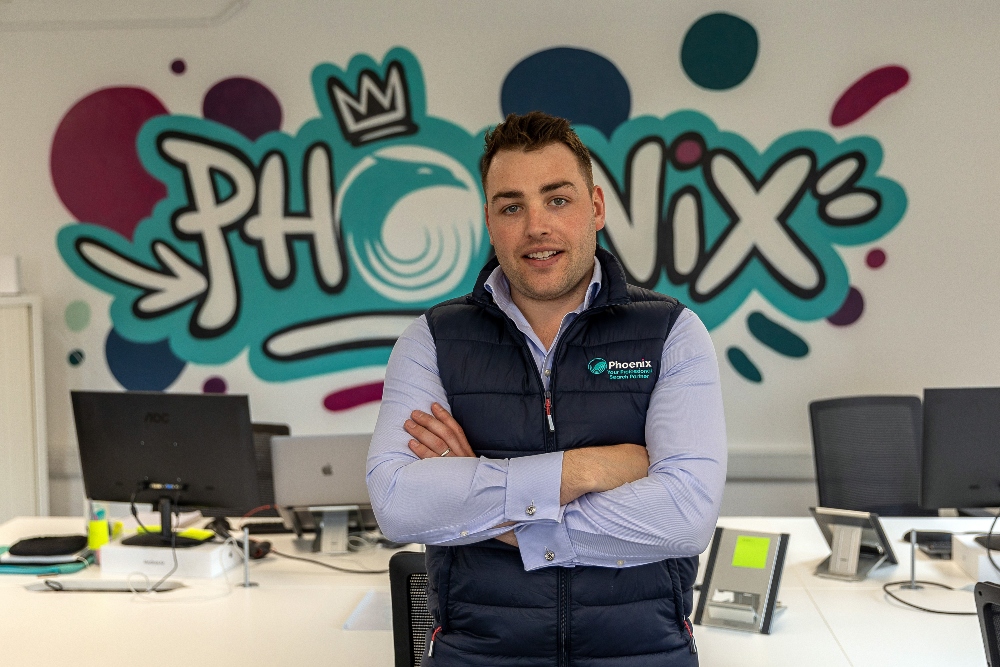Podcast Ep 153: Ruth Lyndon, co-CEO of specialist recruiter Phoenix, on how the Irish business is scaling to the US and beyond through professionalism and grit.
In recent weeks we reported how Phoenix has opened its first US office in New York City.
The business led by co-CEOs Ed Rossiter and Ruth Lyndon offers recruitment services to companies within the tech, fintech, financial services, and professional services sectors.
“In an indigenous business you will get to see and feel the impact your decisions are having”
The Irish headquartered company raised a €1m investment last year to help fuel its international growth plans.
Since then the business has gone from strength to strength further expanding into three global geographies with offices currently in Limerick, Dublin, London, and most recently New York. The new Phoenix New York office is based in the iconic Chrysler Building on the East Side of Manhattan. Currently the company employs over 50 people worldwide and is expanding across all locations.
A silver lining
Our conversations begins as we discuss the recent spate of tech layoffs at big brand name tech businesses. Undaunted, she describes the changes as a “natural recalibration.”
She explained: “This was coming at a time when these companies were obviously making hay while the sun shone very brightly due to changing consumer habits during Covid-19. This attracted high backing from venture capitalists and private equity companies and many companies achieved record valuations. There was as a result over-hiring and a spike in hiring that made sense at the time. But now that things are returning to more normal, pre-pandemic behaviours it was inevitable. Some of this hiring, particularly on the sales and marketing side, was maybe a little over ambitious.
“A lot of these global redundancies were inevitable in the tech space. And also a lot of these roles aren’t actually tech-specific roles, actually more sales, marketing, business development and talent acquisition roles.”
This could be a boon for both professionals and smaller, indigenous firms as it means skills sets gleaned in multinationals can be applied in a way that allows them to make a much bigger impact in a firm run by owners and founders.
“From an indigenous perspective there is a silver lining as we have more talent coming into the market that otherwise would have gone to the large multinationals and lured by the beanbags, the unlimited coffee and wine, food, beer and all the rest.
“In an indigenous business you will get to see and feel the impact your decisions are having.”
Prior to starting Phoenix four years ago, both Lyndon and her co-founder Ed Rossiter worked in the corporate world. Rossiter previously worked with giants BDO and Morgan McKinley, while Lyndon is a qualified solicitor who worked at big 5 firms such as A&L Goodbody and Maples & Calder.
After a stellar career as a funds lawyer, Lyndon made the career change for recruitment in 2014 and sought experience at large international and boutique recruitment agencies before cutting her teeth as an entrepreneur.
“We’ve grown hugely in the last four years and we continue to have ambitious growth plans. From the very get-go we had to distinguish ourselves and we had to be very straight up about what we are and what we are not, ‘but this is what we can offer you.’
“And interestingly enough we have people calling to join us.”
Lyndon believes that this is now a time for SMEs to shine, even if the markets are turbulent.
“Now more than ever, the company’s ability to adapt and innovate is absolutely critical to get through the somewhat turbulent times that we have ahead. And I think in order for a company to do that, it’s critical that its employees are have the same mindset. And they’re the kind of skills that employers love to see coming. It is a proven ability to adapt, it’s a proven ability to work under pressure.”
She believes people coming from a corporate or big tech environment have a lot to offer scaling SMEs but hiring businesses need to realise that it is a two-way conversation.
“I think it’s absolutely imperative that an SME makes sure that it’s very clear on what it can offer potential talent. And all the way through the hiring cycle from the initial advertisement or the agency, that they understand your unique selling points (USPs) and how that’s delivered to a candidate. And indeed, even throughout the interview process, I think that is already really key.
“Ultimately, we predict that this is going to remain an employee-driven market. So it is really about being clear on USPs and making sure that you have a strong engagement process and recruitment process. But equally, when it comes even through the interview stage, that there are people in your office that can go in during those interviews and not so much sell, but present those USPs.
“But if it’s done right, and they’re clear on their message of what they can offer, I do think it definitely is an exciting time for SMEs coming into 2023.”
Leaving the life of a high-flying corporate lawyer for recruitment was a seismic change for Lyndon but a decision that was driven by passion.
“It was the bravest thing I ever did. But I had always thought about recruitment and I felt it was an area that had a lot of transferrable skills. So I ripped off that plaster in one fell swoop and I moved down to Limerick where I am based and got into recruitment all in one go. So it was pretty life transforming to be honest. But it’s funny how things come back around. I do some of the work for Phoenix from a legal perspective.”
Her belief is that recruitment is just as vital as any other professional service. “Like I said there are a lot of transferrable skills, particularly from both a business development and client piece. Recruitment can and will get a bad rap because you have people who are in it for all the wrong reasons and taking the wrong approach. Both Ed and myself always felt very passionately that there is no reason why this shouldn’t be akin to any other professional service.
“Human capital is the most important asset of any business. You need to invest to make sure that you attract the right people and keep them. So we were very passionate about our approach to recruitment is that it is like any other professional service when done correctly.
“It’s about the relationship. It is not transaction-led. We want to gain the trust of our clients and our candidates and that they know that what we are saying is honest and accurate.”




